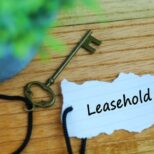
Exiting your commercial lease – what are the options?
13th January 2021 by Mark Preece
‘If your business is struggling and you lease your premises, it might be tempting to simply hand back the keys and walk away from your lease,’ says Mark Preece, Head of Commercial Property at Laceys Solicitors.
‘However, ending your obligations under a lease is not that simple! While there are several ways to approach this, there are numerous pitfalls and the right negotiation tactics will be crucial, so you should speak to your solicitor as soon as possible.’
Mark outlines the options of exercising a break clause, surrendering a lease, an assignment or underletting.
Exercising a break clause
The first thing to check is whether your lease has a break clause, which will give you a right to end the lease early. Timing is critical, as most breaks can only be exercised on specific dates during the lease. You will have to serve written notice on the landlord, and the lease will set out how many months ahead of the break date this must be done. There are lots of possible traps here, especially if the lease sets out detailed requirements for how and where your notice must be served. It is always safest to get your solicitor to check the lease and serve the notice on your behalf.
Once you have served your notice, you need to get ready to move out by the break date. Most break clauses have conditions attached, and if you do not satisfy them you may be stuck with your lease. Typical conditions include paying any rent and other money due to the landlord at the break date and leaving the property in a proper state of repair, removing all of your stock and equipment, and possibly undoing any alterations you made during the lease. You should be careful not to leave anything in the property as this can be treated as a failure to vacate. Again, it is really worthwhile getting advice from your solicitor, because even a minor oversight in relation to break conditions can make the difference between ending your lease and remaining on the hook.
Surrendering a commercial lease
If you do not have a right to break, you will need to approach your landlord to negotiate ending your lease early by surrendering it. Your landlord is under no obligation to agree as empty premises are not an attractive prospect. However, you may find that they have another possible tenant lined up or they are planning a redevelopment or change of use. If so, it may suit the landlord to bring your lease to an end.
If you surrender your lease you will be released from any future obligations, but you are still liable for anything you were required to pay or do while the lease was in place. This means that when negotiating a surrender, you should expect to reach some sort of agreement about outstanding payments and the cost of any repairs needed to the property. You may even have to pay an additional premium to compensate the landlord for loss of the rental income they expected.
Once you agree on the principle, a lease can be surrendered in two ways:
- by a formal written agreement (a deed of surrender) between the landlord and tenant; or
- by the landlord and tenant acting in a way that makes it clear they intend to treat the lease as at an end (a surrender by operation of law).
A surrender by operation of law can be attractive because it does not require any formal documents. This is where handing back the keys can be relevant – if you hand back the keys and move out, intending to surrender the lease, and your landlord accepts this, the lease will be treated as surrendered. It is still vital to agree the surrender with the landlord first because, even if you have returned the keys, your landlord can keep the lease in place by making it clear to you that they are not willing to accept your actions as a surrender.
Assignment or underletting
If you do not have a break clause and cannot agree a surrender, your other option is to look for someone else to take on the premises, either by taking on the lease itself or by taking an underlease.
Before you start looking, you should check with your solicitor whether or not your lease allows an assignment or underletting, as these are sometimes restricted.
Again, you will need to negotiate with the landlord. They will have to be reasonable in deciding whether to accept any new tenant or undertenant you propose, but they are entitled to impose specific requirements especially that anyone you propose will be able to pay the rent and carry out any other obligations in relation to the property. If you want to assign or underlet to someone who plans to change the use of the premises, the landlord may be able to refuse on that basis.
How we can help
Getting out of a lease when the economy is shaky may not be easy but involving your solicitor early on will mean you can make the most of the options available. If you would like further advice please contact Mark Preece in confidence on 01202 557256 or email m.preece@laceyssolicitors.co.uk


